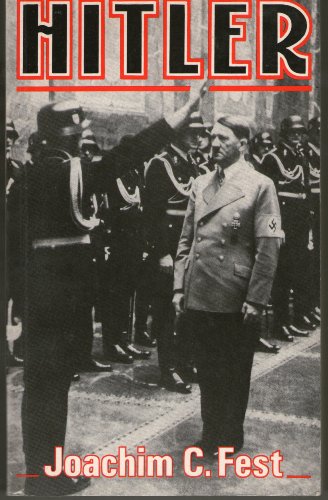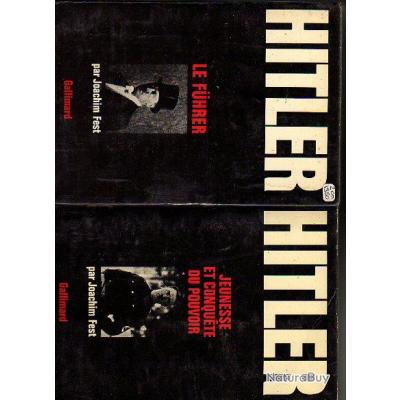

Johannes maintained that "one does not volunteer for Hitler's criminal war" and that conscription was preferable after spending time as a PoW in France, Joachim revisited the subject with his father: "You weren't wrong," the older man allowed him, "But I was the one who was right." We are not little people in such matters," Johannes, a devout Catholic, had replied Joachim later recalled seeing him come home covered in blood after fighting street battles with Nazi Brown Shirts.Īt his father's insistence, Fest did not join the Hitler Youth, but in 1944 volunteered for the army to avoid conscription into the Waffen-SS.

At the age of 9, Joachim recalled hearing a row in which his mother pleaded with his father to become a party member, arguing that a little hypocrisy was justified to ease the hardship the family was undergoing. He was born in Berlin, and in 1933 his father lost his job as a schoolteacher because he refused to join the Nazi party. The plight of the "little people" caught up in brutal events engineered by others was a central feature of Fest's upbringing. Examination of the question will continue with the publication of Fest's own memoirs, Ich Nicht (Not Me) - his father's statement of defiance - later this month. Inspired by his father Johannes's resistance to the Nazis, Fest became convinced that responsibility for the emergence of the Third Reich lay with the millions of Germans who actively supported or turned a blind eye to Hitler's regime. Only last month, Fest hit the headlines when he accused Noble prizewinner Günter Grass of double standards for criticising German society for failing to deal adequately with its Nazi past while keeping secret his own membership of the Waffen-SS.


 0 kommentar(er)
0 kommentar(er)
